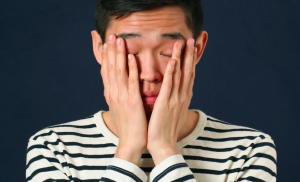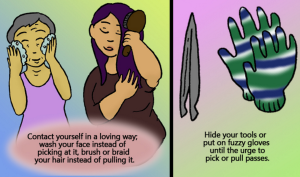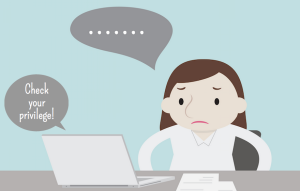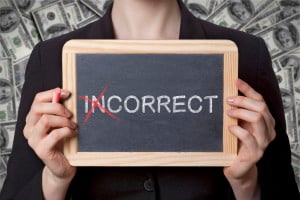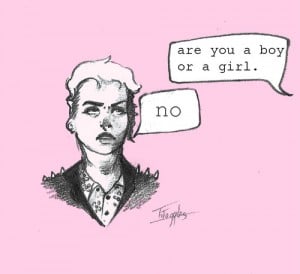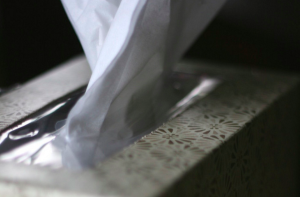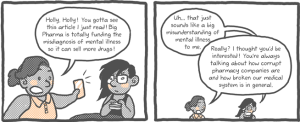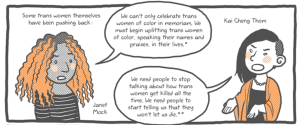(Content warning: rape, sexual assault)
One of the most talked about issues in the Asian American community is how Asian American men are emasculated.
There are stereotypes about Asian men’s penis size, about their lack of sexuality, and any of a number of other things meant to portray them as “effeminate.”
I put “effeminate” in quotation marks because while those stereotypes are harmful, it’s time we started thinking about the way we talk about them. Specifically, it’s time we examine how we refute them.
I understand how harmful stereotypes can be. After all, Asian American women and femmes face many stereotypes of our own. But if we’re trying to break stereotypes down, we can’t perpetuate other oppressive ideas.
What am I talking about?
Well, as Jenn writes over at Reappropriate, one of the ways in which Asian American men respond to these stereotypes is by acting hyper-masculine and being misogynistic.
Because they feel “emasculated” and therefore powerless, they take out their resentment on women. There are many examples of this happening, from Elliot Rodger to David Choe, an artist who recounted how he raped his masseuse on a podcast.
These men see women, especially Asian American women, as objects that they’re owed, rather than as individuals who can make their own decisions about who to date.
Not all Asian American men do this, and there are many Asian American activists who try to address the stereotype of the “effeminate” Asian man without resorting to toxic masculinity.
However, even these activists perpetuate some oppressive ideas while trying to break down stereotypes about Asian American men.
For example, people often leave out queer Asian American men when talking about emasculation. And even when they do include queer Asian American men, they mean the cis men, not trans men, and also aren’t including non-binary folks.
Am I saying that we shouldn’t talk about it at all, then? No. And I’m also not pointing fingers at people and telling them why they’re terrible.
As an Asian American, I’m just putting out a call for all of us to begin re-thinking the ways in which we talk about emasculation – and about gender in our community as a whole.
So here are some of the problematic ways in which we talk about emasculation and possible alternatives to them.
1. We Call It Emasculation
I had to resist the urge to put quotation marks around emasculation every time I used it in the previous paragraphs. To be honest, I can’t stand the word.
“Emasculation,” according to the dictionary, means “to deprive of strength, vigor, or spirit,” or “to deprive of virility of procreative power.”
I’m not splitting hairs when I call this word problematic. After all, words have power, so we should be careful about which ones we use.
And when we use “emasculate” to describe stereotypes about Asian men, we do mean that they’re being deprived of strength.
What’s more, we’re associating that strength with being a man. If Asian men aren’t being portrayed as strong leaders, then they’re not being portrayed as real men.
I know there are those of us who are trying to redefine masculinity so it doesn’t have to include qualities like strength, virility, and other things that are traditionally masculine.
But if that’s what we’re doing, then shouldn’t we get rid of using “emasculation” in the first place? By its very definition, it defeats the purpose of redefining masculinity.
And really, the reason why stereotypes about emasculated Asian men are harmful is because they make it easier to dehumanize them. If Asian men aren’t men, then they’re more like women – and Asian women are stereotyped as passive and weak.
In other words, if Asian men are more like women, they’re more vulnerable.
That’s why my real problem with stereotypes about Asian American men is that it further demonizes femininity. It makes femininity something to be exploited as well as something undesirable.
It just bothers me that when we use the word “emasculated,” we’re using it like it’s some kind of insult. Because if it’s an insult to be emasculated, it follows that it’s an insult to be feminine – or rather, to be associated with traits that are considered feminine, like passivity and weakness.
We’re also implying that it’s an insult for men to be considered feminine, and that’s a whole other topic that I’ll be talking about in the following sections.
So what can we do instead of using the word “emasculated?”
Well, for starters, we can start talking about the detrimental effects of demonizing femininity and start unpacking why we only valorize the kind of strength that’s associated with leadership and aggression.
2. We Imply That to Be a ‘Feminine Man’ Is Bad
If you can agree that there are many different ways to be a man, then surely you can agree that there’s nothing wrong with being a man who’s considered “feminine.”
Yet that’s what we’re saying when we talk about stereotypes about Asian American men. We claim that no, they’re definitely men. They’re definitely strong. They definitely like sex and sports and other manly pursuits.
First of all, what makes any of those things “manly?”
Second of all, is there something wrong with men who don’t like any of those things?
Like I said in the intro, a lot of Asian American men resort to toxic masculinity in reaction to these stereotypes. But even the men who don’t do that fall back on claiming that they are masculine in some way or another.
Sometimes, disturbingly enough, people talk about penises as if having a penis makes you a man. One of the stereotypes about Asian men is that they have small penises, and people who argue against that pull out all the scientific facts about why this isn’t true.
That’s cool, but what about men who aren’t assigned male at birth (AMAB)? What about people who are AMAB, but aren’t men? What about trans women?
Trans women experience transmisogyny, a particular form of misogyny that dehumanizes trans women for being feminine and for being so when they aren’t assigned female at birth.
And whether you mean to or not, you’re playing into that transmisogyny when you act as if there’s something wrong with people who are assigned male at birth being feminine.
Instead of throwing up our hands in disgust that people stereotype Asian American men as “feminine,” perhaps we can start discussing the stigma around “feminine men” and begin to dismantle our own oppressive ideas about that.
3. We Ignore People Who Aren’t Men or Women
It’s good to redefine masculinity so that we’re not promoting toxic masculinity, but have we ever thought about why it’s so important to claim masculinity in the first place?
Why is it considered such an insult to not be considered a man? Why are we so insistent on making sure that men are considered real men?
Again, that sort of attitude demonizes femininity.
And it also erases the existence of Asian American people who aren’t men or women.
There are people whose gender doesn’t lie within the binary, like me. Whenever I see people insisting that Asian American men need to have their masculinity recognized, I feel like they’re just reinforcing the belief that there are only two genders.
I mean, there’s a wide and beautiful range of gender identities that go beyond just “man” and “woman.”
When you insist that we have to recognize Asian American men as “real men,” you’re insisting that we have to reinforce the idea that there are discrete categories of gender, rather than that gender is fluid.
It’s fine if your gender identity falls within the binary, but it’s harmful to shore up that identity by pretending like non-binary people don’t exist.
So maybe we can start moving away from insisting that Asian men have to be men. You can just say that they are, and leave it at that. There’s no need to define (or redefine!) the meaning of being a man.
4. We Other People Who Are Asexual
I get that the stereotype about Asian men being asexual is meant to dehumanize them, just like all the other stereotypes about them.
But when we dispute this stereotype, why do we do it by insisting that of course Asian American men have sex? I mean, they do, but if they don’t is that something terrible?
Being asexual isn’t inherently bad, and there are plenty of Asian Americans who fall within the spectrum of asexuality. It’s an insult to them to protest asexuality as if it’s something undesirable.
What we’re really doing is buying into the same attitude that informs that stereotype in the first place.
We’re agreeing that asexuality is something “other” and undesirable – and that Asian men shouldn’t be lumped in with that.
I’m not saying we shouldn’t talk about Asian American men (and Asian Americans in general) having healthy, enjoyable sex. That’s an important issue.
But it’s time we started being more considerate of Asian Americans who don’t want to have sex, and stop acting as if they’re an anomaly.
If you’re trying to dispute someone who claims that Asian American men are asexual, just ask them, “What’s wrong with being asexual?”
If they come back with some weird shit about how asexual people are creepy and robotic—well, that’s when you can tell them otherwise.
5. We Appropriate Black Culture
There were a lot of people who were excited to see Eddie Huang’s memoir, Fresh Off the Boat, turned into a TV show. I was not one of them.
I’d never read the book, but when I saw the trailer, I cringed. The story is about a Chinese American boy and his experiences after his father moves them to a neighborhood without many Asian people. Doesn’t sound like a bad thing, right?
And it wouldn’t be, if it weren’t for the fact that the boy loves hip hop and uses hip hop as a way to assert his coolness and swagger.
Many Asian Americans, like other people, listen to hip hop. But as non-Black people of color, hip hop is not ours to claim. We didn’t create it, and we can’t understand the significance of hip hop and its history to Black people.
So can we appreciate it? Yes, but it’s very easy to tip from cultural appreciation to cultural appropriation, and Huang does the latter.
Appropriating Black culture is one way in which Asian American men assert their masculinity.
Black people are stereotyped as loud, aggressive, and angry. For many Asian American men, it makes sense to appropriate Black culture in order to push back against stereotypes of Asian Americans as meek and submissive.
This is, of course, not right to do. Non-Black people are rewarded for appropriating Black culture, while Black people are demonized for that same culture.
It’s not just white people who benefit. Non-Black people of color do, too, and that’s why Eddie Huang gets hailed as a hero who’s breaking stereotypes about Asian American men – even while Black men are stereotyped as thugs and criminals for doing and wearing the same things.
If we’re appropriating other people’s cultures in order to help ourselves, is that really doing any good? Maybe for us – but it isn’t right to step on other people in order to benefit ourselves.
***
I know, firsthand, that stereotypes are harmful. They destroy our image of ourselves and dehumanize us. They’re used to excuse the oppressive things that people do to us.
But it’s very easy, when refuting those stereotypes, to perpetuate other oppressive ideals. In our rush to stand up for ourselves, we end up standing on other people’s backs – and that’s not okay.
I’m not condemning people for standing up to stereotypes about Asian American men.
All I’m asking is that we start thinking about how we’re doing that standing up, questioning some of the ideas we’re perpetuating, and then thinking of different ways where we can empower not just Asian American men – but other people in the community as well.
[do_widget id=’text-101′]
Kerry Truong is a Contributing Writer for Everyday Feminism. They are a queer diasporic Vietnamese womxn and graduated this spring with a double degree in English and Asian American Studies. When they’re not philosophizing about this at length, they’re reading, taking long walks, or cooing over all the dogs who cross their path. Read their Everyday Feminism articles here.
Search our 3000+ articles!
Read our articles about:
Our online racial justice training
Used by hundreds of universities, non-profits, and businesses.
Click to learn more


